eero Beacon vs Orbi (RBK22): Which should you buy?
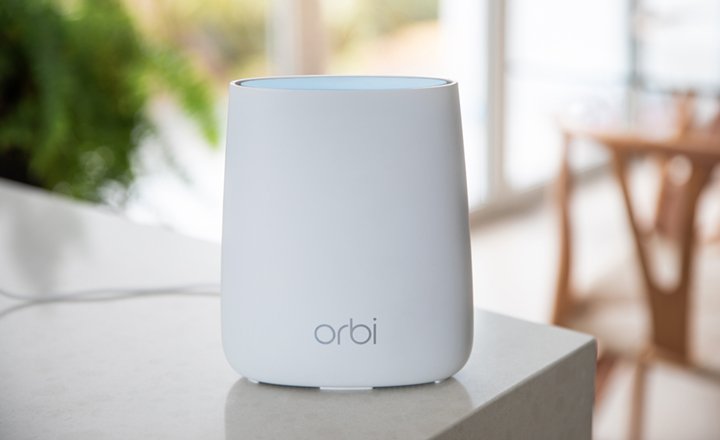
Netgear Orbi RBK22
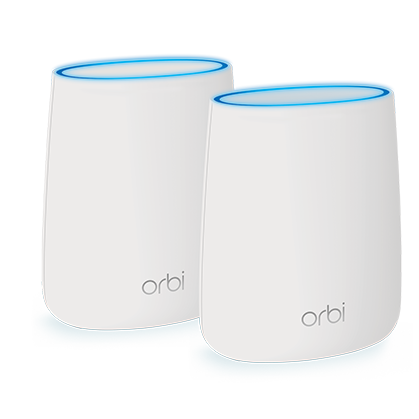
Netgear's Orbi line has a ton of versatility with the RBK22 sitting in the middle of the range with fast 802.11ac tri-band Wi-Fi and a dedicated backhaul. You also get three free Ethernet ports so you can keep your wired devices connected without any extra hardware.
Netgear Orbi RBK22
Versatile performance
Eero Beacon
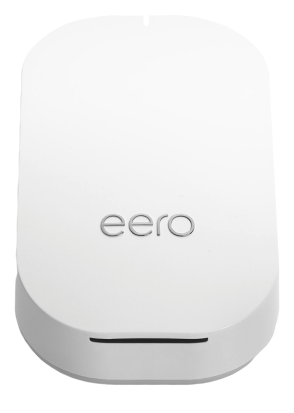
Eero Beacon is one of the easiest options for expanding an existing Eero mesh network. Its compact design sits right against a wall without running any additional wires. It also has an integrated night light, making it a great hallway mesh point.
Eero Beacon
Easy Eero expansion
As an upgrade to an existing Eero mesh setup, the Eero Beacon is a great way to add 1,500 square feet of coverage with more than enough speed for most applications and a discreet design that works in nearly any room. The main issue is that it requires that you either have an Eero or Eero Pro network for it to connect to. The Orbi RBK22 system can work as a standalone mesh system or as an expansion to an existing Orbi mesh. On its own, it will cover most homes with its router and satellite combination covering up to 4,000 square feet. It even features a tri-band setup with one of its 5GHz bands dedicated to the mesh connection.
What to look for in a mesh
If you're looking to get a new router, your first major choice is whether or not to go with a large traditional router or build a mesh. The best part of a mesh is that it can grow with you and coverage can be added as needed. Eero has made mesh expansion as simple as possible with all Eero branded routers working with one another.
The Eero Beacon focuses on wireless by ditching all wired connectivity and simply expanding your Wi-Fi. Orbi also has a lot of expansion options but this wealth of options can lead to a little more confusion for someone new to networking. Still, most Orbi solutions will match the dual-band eero's speed so it's hard to go wrong with any Orbi option.
| Header Cell - Column 0 | Netgear Orbi RBK22 | Eero Beacon |
|---|---|---|
| Wi-Fi | 802.11ac tri-bandOne 5GHz channel dedicated to backhaul | 802.11ac dual-band |
| Wireless speed | AC2200 (400Mbps + 867Mbps + 867Mbps) | Not specified |
| Ethernet ports | 2 per unit (3 available) | None |
| Coverage | Combined 4,000 square feet | 1,500 square feet |
Eero Beacon was never meant to stand alone and makes the most sense when it's adding coverage to another Eero router. Still, it's small size makes it a great option for an area with limited space such as a hallway. The Orbi RBK22 has an advantage in the tech specs but will require a bit more thought in placement, however its superior coverage should ease the burden.
Speed and coverage
With the Eero Beacon, you can expect similar performance to the base eeros thanks to its dual-band 802.11ac Wi-Fi setup. While Eero hasn't disclosed the exact speed potential of the Beacon, it should be more than capable of providing enough speed for any browsing and streaming. It's probably faster than most home internet connections. Still, it's not as fast as a tri-band router like the Eero Pro or the Orbi, but if you are looking to add around 1,500 square feet of coverage to your Eero mesh, the Beacon is a great option.
Be an expert in 5 minutes
Get the latest news from Android Central, your trusted companion in the world of Android
Netgear dedicated an entire 5GHz band to the mesh backhaul with the Orbi RBK22. With the Orbi's speed being made up of 400Mbps on the 2.4GHz band plus 867Mbps on both of the 5GHz bands, you still have room for pretty much anything you want to do on your network. At 4,000 square feet of coverage, this set will be able to effortlessly cover most homes as well. If you are trying to get the most out of a gigabit internet connection, you will either need to stick to wired or consider a much faster wireless router.
Both of these products are aimed at providing enough speed for common home uses like video streaming up to 4K and browsing and they succeed.
Build your mesh
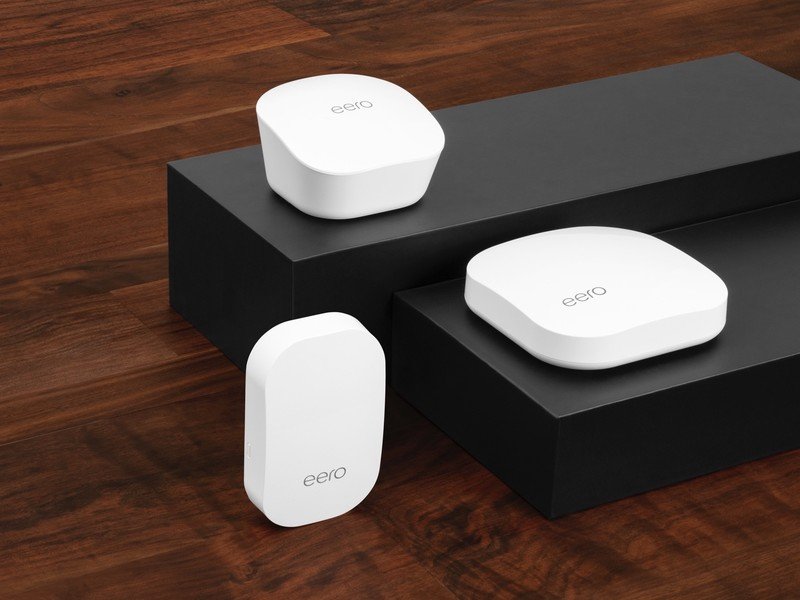
The Eero Beacon needs an existing Eero mesh to work, which means you'll need to pair it with an eero or Eero Pro, with the latter offering faster tri-band speeds. If you already have an Eero mesh setup, you can easily add the Beacon with the Eero app. The Eero Pro is the fastest option but will really only be needed for connections over 350Mbps, according to eero.
The Orbi RBK22 comes with everything you need to start a mesh but can also be a good option for expanding an existing Orbi network. Just be sure if you're adding any node to a mesh that the fastest router is connected directly to the modem or your faster equipment may be left spinning its wheels. If you find you need more coverage down the line, you can add in another satellite.
Aesthetics
One place where the Eero Beacon shines is its size and appearance. It plugs directly into the wall with no extra cables and is flat enough that it is barely noticeable. It also has the nice addition of having a night light built-in. It's glossy white plastic front with matte white sides allows it to blend in with most wall sockets or smart home equipment.
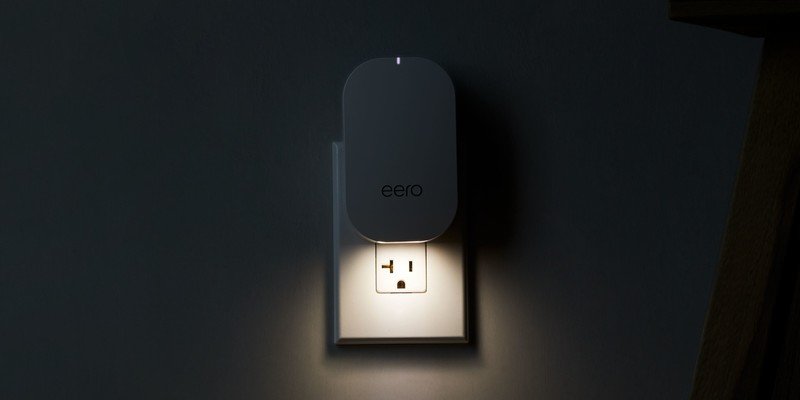
Orbi routers are by no means ugly but they do stand quite a bit taller and will need to sit on a surface. Compared to a traditional router they look great with an all-white housing and a subtle blue glow around the top. If you are looking for an Orbi with a comparable form factor to the Eero Beacon, something like the Orbi wall-plug satellite should work well.
Which one works for you?
The biggest question is whether you already have a mesh or are starting a new one. If you have a mesh, specifically an Eero mesh, the Eero Beacon is one of the best ways to add additional coverage without taking up much space. If you are looking for an entirely new network or to expand an Orbi setup, the Orbi RBK22 is the stronger option here especially considering its large amount of coverage.
When Samuel is not writing about networking or 5G at Android Central, he spends most of his time researching computer components and obsessing over what CPU goes into the ultimate Windows 98 computer. It's the Pentium 3.

